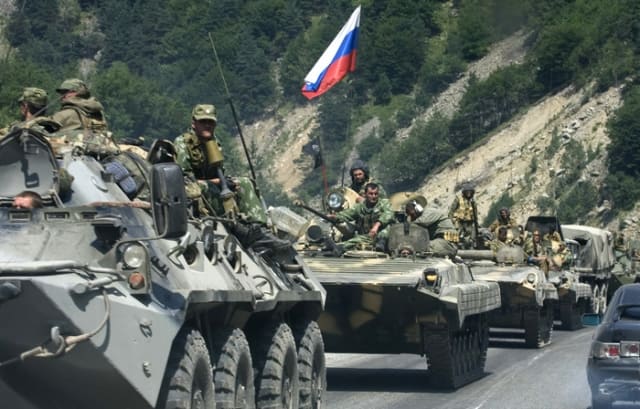Under the chair of Tobias Ellwood (Conservative MP for Bournemouth East), the House of Commons Defence Committee (HCDC) has recently published a report aimed at clarifying the Government’s approach to the remainder of the Integrated Review. The report – In Search of Strategy: The 2020 Integrated Review – is the culmination of the first phase of the Committee’s inquiry that is examining how the Integrated Review should be conducted through the identification of lessons learned from the timing, methodology and structure of previous defence reviews, and the consideration of international best practise.
Conduct of the Inquiry
The HCDC considered oral and written evidence from a number of experts, as well as evidence submitted by the general public. The following witnesses gave evidence at two formal meetings, on Tuesday 10 March, and Tuesday 17 March:
– Douglas Barrie, Senior Fellow for Military Aerospace International Institute of Strategic Studies.
– Malcolm Chalmers, Deputy Director General Royal United Services Institute.
– Tom McKane, Former Director General for Strategy and Director General for Security Policy (2008-14) Ministry of Defence.
– Lord Stirrup, Former Chief of Defence Staff (2006-10).
– Lord Ricketts, Former National Security Advisor (2020-12).
The Committee intends to use the findings of this activity as a framework to collect evidence on the future of UK defence in Phase II of the inquiry.
Questions asked by the Report
In Search of Strategy: The 2020 Integrated Review report suggests ways in which the Government should organise and approach the review process. It endorses the quinquennial review cycle and highlights the problems of conducting frequent supplementary reviews outside the schedule, i.e. the National Security Capability Review (NSCR) in 2018 and the Modernising Defence Programme a year later. It also emphasises the importance of ensuring that the Integrated Review provides a framework for the UK’s security, defence, development and foreign policy for at least the next five years.
Another significant area of concern that the report identifies is the leadership and oversight aspects of the review. It remains far from clear how and when the Prime Minister and other Cabinet Ministers will become involved in the review, nor what the input of the National Security Advisor and National Security Council will be. Significantly, the role of the Number 10 Policy Unit and Special Advisors is also unclear. Since the report was published, the chair of the HCDC has urged the government to provide greater transparency surrounding who is involved in the review and how different aspects will be structured and sequenced.
Contributions made by the Report
However, the report is not limited to pointing out issues. It also offers a number of first principles to help ensure the review provides a sustainable and actionable framework for the future of defence. It starts with four simple, but crucial, questions, the answers to which should frame the review:
– What are the threats and risks to the UK?
– What are our priorities?
– What do we need to achieve them?
– What do we have/what are the shortfalls?
From this, the HCDC concludes that the Integrated Review must, at the outset, clearly identify the desired “ends” of the UK’s security, defence, development and foreign policy. The Committee also believes it is only by developing a detailed conceptual policy framework that the review will be able to identify and question current assumptions and provide an evidence-base to make decisions about the future.
The strongest contribution made by the report is the emphasis it places on prioritisation. As @onUKDefence regularly points out, establishing priorities is a critical component of any defence review. As Lord Ricketts explained in his evidence to the Committee:
“If you want to make choices – and I come back to the point that strategy really is about making choices – then you do need to have some priorities, recognising that you cannot predict what events will happen, but you need to have some areas that you are going to give priority to.”
Whether or not the Integrated Review keeps with the same National Security Risk Assessment construct that has underpinned the previous two SDSRs, the report recommends that it must:
– Establish broad threat and risk categories.
– Distinguish between short-term and long-term risks and threats.
– Include a clear and realistic prioritisation.
Defence Focus of the Report
Finally, as might be expected, the HCDC considers the Integrated Review from a defence perspective. Drawing on another open inquiry into Work of the Chief of Defence Staff, the report recognises the importance of the information environment and how it relates to the five operating debates of maritime, land, air, cyber and space. It also echoes the concern raised by General Sir Nick Carter that “you cannot distinguish between peace and war when you are up against the sorts of opponents that the UK faces.” To that end, it supports the need for an updated integrating operating concept for defence, to explain how the armed forces will fight in the future.
Shortfalls of the Report
To be fair, there are few. The report has analysed the main inputs that the review should consider and offered pragmatic conclusions and recommendations against them all. As a result, it is a very comprehensive document. That said, its thoroughness reinforces the complexity of the overall review process, which is, in itself, an issue. In such a multi-faceted endeavour, it is easy to miss something or simply not to join everything up. Ensuring coherence across such a complex undertaking will be a significant challenge, which could have usefully been highlighted in the HCDC’s report.
A second shortfall of the report is its failure to expose post-review issues. Even though the Government introduced its Fusion Doctrine as part of the 2018 NSCR, most commentators would argue it has a poor history of managing National Security Strategy as an ongoing process (see, for example, the RUSI Journal Article by Patrick Porter’s , Professor of International Security and Strategy at the University of Birmingham: Why Britain doesn’t do Grand Strategy). Furthermore, and closer to home for the HCDC, there is a danger that, without rigorous oversight, the single services will continue to focus on their own environmental capability interests rather than take the difficult decisions necessary to support the development of an integrated, joint force.
Conclusion
In Search of Strategy – the 2020 Integrated Review is a timely and comprehensive report that calls out most of the issues associated with the Government’s ongoing review into security, defence, development and foreign policy. The HCDC has clearly listened to some very knowledgeable experts and developed a number of credible conclusions and recommendations that, if taken on board, should greatly improve both the process and outcome of the Integrated Review. The observations around prioritisation are particularly compelling.
However, the report has missed a trick by not calling out the UK’s dismal track record on actually implementing the outcomes of security and defence reviews. For all the rhetoric around being the “most radical reassessment of the UK’s place in the world since the end of the Cold War”, there is a danger that the Integrated Review will go the way of many of its predecessors and simply become a piece of shelf ware that failed to make a difference. That would be reprehensible.






